A Consumer Guide to the Trailing Edge: December, 2013
Recycled Goods (#115)
by Tom Hull
This column came together as I was researching year-end lists. For most of this year I've ignored new reissues and used Rhapsody to dig back and fill in holes in my ratings database, especially the 1960s. To some extent that was necessity: I simply don't get any reissues these days, much less the big box sets that fill up gift guide columns this time of year. Also, Rhapsody's coverage of recent reissues is spotty at best, and the lack of available documentation makes it impossible to judge the historical value of many reissues. Plus it's nearly impossible, for me at least, to sort through multi-volume sets online. If I had physical copies of, say, the Woody Guthrie 7-CD American Radical Patriot, or even Dave Van Ronk's 3-CD Down in Washington Square, I'd make the time. Same thing goes for the massive "deluxe" repacking of albums like Fleetwood Mac's Rumours or Van Morrison's Moondance: maybe the extra clutter is worth something on your coffee table, but as mere data I hardly know where to begin. (I was able to deal with White Light/White Heat only by splitting up the task, which was simpler there than it would have been for Rumours or Moondance.)
I've also ignored the mega-packages Sony is so fond of producing (and so reluctant to send out to my kind): even if I got my hands on The Complete Columbia Album Collection of Herbie Hancock or Taj Mahal or Harry Nilsson (ok, RCA) or Miles Davis or Johnny Cash, the only way it would make sense to deal with them would be to separate the collection into individual albums and slog through them one at a time. In which case, especially if I'm streaming, I'd be inclined to skip past the ones I've already heard/rated and pick up the others. (Good chance I will do that some day with the 1975-90 Dylan period I managed to completely ignore, much as last month I picked up Self Portrait and New Morning.)
Another thing that should be said about this month is that I poked around a bit. I skipped the 3CD Cleaners From Venus box in favor of their first album, and called it quits even though it wasn't bad. I only did the first (better-regarded) Len Bright Combo. I did last year's Fela Kuti comp, but not its predecessor (which is probably equally good). I did the most famous of the Roky Erickson reissues, and again stopped there. I picked out OJC Remasters I hadn't heard before. In some cases Rhapsody helped: I looked for the latest Lee Hazlewood comp, but only found the previous year's one. I also didn't bother with most of the Rough Guides, since I never know what's in them or why. Most of the stuff I looked for came off this year's metacritic file, but I readily went back to 2012 when I found something that looked promising. And I had a couple Xmas albums in my unplayed queue that were even older, so I worked them in -- then looked up a couple more for good measure. Also threw in two (of three) older Prestige Legacy comps: the first because Christgau praised it earlier this year, and after I had heard it I added the second because it looked like a better record (and it is).
Missed a lot of relevant stuff I would have liked to have reviewed in 2013. But I did come up with quite a bit worthwhile below. Enjoy.
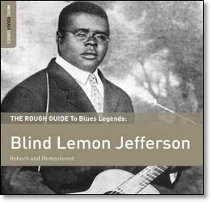 |
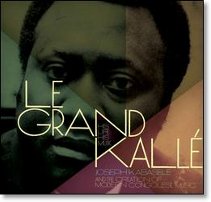 |
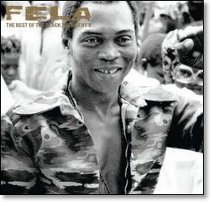 |
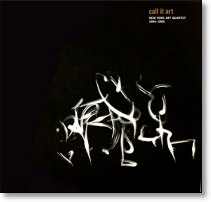 |
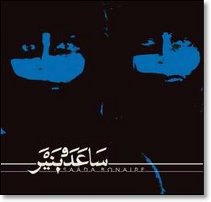 |
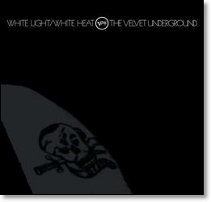 |
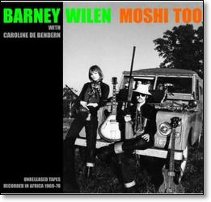 |
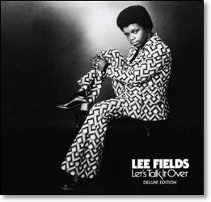 |
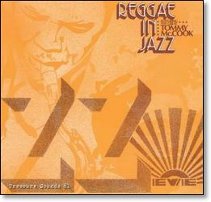 |
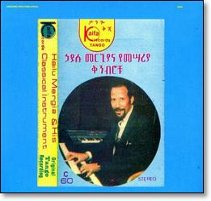 |
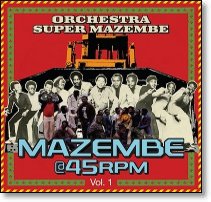 |
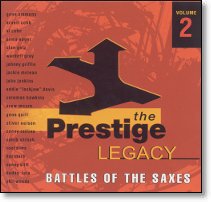 |
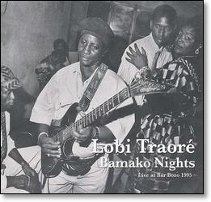 |
Tony Bennett: The Classic Christmas Album (1968-2008 [2011], Columbia/Legacy): I've despised Christmas music as long as I can remember, even when I dutifully went through with all the usual conventions -- something that really hasn't happened since I got sick and missed the last Christmas before my parents died. Nor did it help when I read that Christmas music outsells jazz every year, despite many fewer releases. So I've sit on this thing two years, but Bennett is the perfect Christmas shill: a substantial voice with a light and ingratiating touch, serious enough for the religious crowd but also able to swing a secular tune and liven up a party. This collection spans four decades and both modes: the hymns are a drag and one (a duet with Placido Domingo, "The First Noël") is downright awful, but the pop fare is elegant and lively, some ("My Favorite Things," "I've Got My Love to Keep Me Warm") only loosely related to the theme. Since this came out, the label has built a series around the title: in 2012 they added Doris Day, John Denver, Kenny G, Barry Manilow, Willie Nelson, Elvis Presley, and Luther Vandross; in 2013 Alabama, Johnny Cash, Neil Diamond, George Jones/Tammy Wynette, Gladys Knight & the Pips, Martina McBride, Barbra Streisand, and Andy Williams. Fat chance I'll wind up reviewing any of those. B+(*)
Cleaners From Venus: Blow Away Your Troubles (1981 [2012], Captured Tracks): Prolific 1980s UK group led by Martin Newell, recently reissued in a 3-CD Vol. 1 and a 4-CD Vol. 2 which strikes me as too much to bite off at once, so I figure I'll start with their first slab and see how long I want to stick with them. Still quite a bit here: a nine-cut "Straight Side" with its new wave take on singer-songwriter, and a ten-cut "Bent Side" which meanders off into something like lounge jazz, or maybe he's destined to do soundtracks? B+(**)
Bob Dylan: The Bootleg Series Vol. 10: Another Self Portrait (1969-1971) (1969-71 [2013], Columbia/Legacy): Outtakes from the years that produced the horrid Self Portrait and the better (but who cares?) New Morning -- a period when he made his first attempts at developing a coherent mature sound after the whiplash of his folk-to-rock-to-country first decade, although it's not clear that he wanted to -- it would be another 20-25 years before he got that act together, by which time he had already cursed us with "Forever Young." This comes in several confusing package sizes: the basic one is 2-CD (35-tracks), then there is the 4-CD box which tacks on Live at the Isle of Wight Festival, 8/31/69 and a remastered Self Portrait (as if you haven't been punished enough). Rhapsody goes the other way, just offering 15 cuts, ending with the 1971 demo of "When I Paint My Masterpiece." Unless you want to argue that they deliberately left the better tracks out, that's enough of a sample to grade, and I, for one, am glad I didn't have to suffer through the rest. B [R]
Lee Hazlewood: The LHI Years: Singles, Nudes and Backsides (1968-71) (1968-71 [2012], Light in the Attic): From Oklahoma, grew up on oil money, produced Duane Eddy, wrote a hit song for Dean Martin, got his only hits thanks to Nancy Sinatra, moved to Sweden, started his own label (LHI), cut an album called Cowboy in Sweden. He gets filed under country for no good reason. Rhapsody lists him as "baroque pop" -- which is true of only the worst dreck here. More often he does songs with bare bones talkie vocals -- the simpler the better -- or duets with various girls (no Nancy here), where he sounds like a more macho (and therefore more stilted) Sonny Bono. He cut with twenty-some albums and has enjoyed a much-hyped reissue program, as if he's some sort of misunderstood underground legend, like Townes Van Zandt or Van Dyke Parks or (I can hardly wait) Kim Fowley. B- [R]
Blind Lemon Jefferson: The Rough Guide to Blues Legends: Blind Lemon Jefferson (1926-29 [2013], World Music Network, 2CD): The most important bluesman of the 1920s, had a voice and guitar that cut past the day's technological limits, and he recorded enough in a short career that ended with his death in 1929 to fill up four JSP discs (Classic Sides, 2003). This 25-cut selection is mostly redundant (and arbitrarily divergent) from two Yazoo compilations, 1985's King of the Country Blues and 2000's The Best of Blind Lemon Jefferson (both 23 cuts, some different). I can't judge the reportedly improved sound here, but will note that this package includes a bonus various artists sampler, an extra 24 cuts of early acoustic blues -- mostly from a couple years later but that's hard not to do with a pioneer like Jefferson. A- [R]
Joseph Kabasele/Le Grand Kallé: His Life, His Music (1953-83 [2013], Sterns Africa, 2CD): Alternate title, also on the front cover: Joseph Kabasele and the Creation of Modern Congolese Music. Kabasele was the guitarist and leader of Le Grand Kallé et L'African Jazz, a vital force in the evolution of Congolese rumba to soukous for three decades, a track record rivalled only by Franco. Wish I could consult the 104-page booklet -- I'm only guessing at dates here, and it's likely that this focuses on the 1960s, especially before Dr. Nico and Tabu Ley Rochereau left his group. (The first track sounds very early, and I'm not sure how much he recorded from 1970 to his death in 1983.) Once this hits its stride, consistently wonderful music. A- [R]
Fela Kuti: The Best of the Black President 2 (1971-92 [2013], Knitting Factory, 2CD): The first volume, which looks to be every bit as fine as this one, came out in 1999 when MCA was revamping his catalog. I was fortunate enough to get the whole stack: 24 CDs, most of which combined two LPs, plus a superb 2CD sampler, The Best Best of Fela Kuti. I wound up grading half of those two dozen A- (or A for Original Sufferhead/I.T.T.) so one could spend time just picking through those, although Best Best was even better. However, the MCAs soon went out of print and chaos ensued -- UK label Wrasse picked up most of the MCAs, but Knitting Factory also got back into the act, with this supplement to its still-in-print 1999 set. It works as well as you'd expect: as I said above, there are a dozen CDs worth of material worth picking from, and the nature of the music lets you shuffle it almost randomly into compilations you can enjoy for hours on end. A- [R]
Thelonious Monk: Paris 1969 (1969 [2013], Blue Note): Normally packaged with a DVD, which is probably the main appeal, at least for anyone so inclined. Otherwise, what you get is live sound from the Salle de Pleyel, with the marvelous Charlie Rouse on tenor sax but substitutes for his bass and drums mainstays with youngsters Nate Hygelund and Paris Wright, and a relatively snappy presentation of the usual songbook. B+(**) [R]
Wes Montgomery: So Much Guitar! [OJC Remasters] (1961 [2013], Fantasy/OJC): The dominant figure in American jazz guitar before fusion and, less decisively, still today, his Riverside albums assumed biblical stature, with Incredible Jazz Guitar the consensus pick, and this set with Hank Jones (piano), Ron Carter (bass), drums, and extra percussion (Ray Barretto) a couple clicks back. Still less than overpowering, especially when they slot it down a bit, and further diminished by tacking on a later live recording that same year, The Montgomery Brothers in Canada, favoring vibes-playing brother Buddy. [original album: B+(**); The Montgomery Brothers in Canada: B] B+(*) [R]
New York Art Quartet: Call It Art (1964-65 [2013], Triple Point, 5LP): Extravagant packaging, with the 5 LPs each in its own jacket, packed alongside a 156-page clothbound book, both enclosed in a very handsome plywood box. The group, with Roswell Rudd on trombone and John Tchicai on alto sax, was more at home in Copenhagen than in New York. They cut the one album they're known for on ESP-Disk, another for Fontana in England, but other recordings have leaked out over the years -- notably Old Stuff, released by Cuneiform in 2010, and now this stack of "previously uncirculated" vinyl. Hard for me to evaluate -- among other things I'm just not accustomed to evaluating things in 15-20 minute chunks anymore -- but everything I play has its fascinating points. Retails at $340 (plus shipping), which I regard as insane. But it is quite a piece of product, and presumably the market knows best. A-
Saâda Bonaire: Saâda Bonaire (1982-85 [2013], Captured Tracks): German disco group, Bremen DJ Ralph von Richtoven and singer Stephanie Lange with Claudia Hossfeld in on the group's only single and Dennis Bovell producing. This beats the bushes for more than an hour of material, the stiff beats retro with exotic spices, flecks of oud and saz and hand drums from Turkish immigrants. Lange's English is a bit stilted -- reminds me of an earlier German disco group, Silver Convention, only with the 1970s swish driven way underground. A- [R]
Hank Snow: The Essential Hank Snow (1937-84 [2013], RCA/Legacy, 2CD): Country singer from Nova Scotia, earned his spurs imitating Jimmie Rodgers' yodel and had his biggest hits with train songs, or let's generalize and call them motion songs, especially "I'm Moving On" and "I've Been Everywhere," although some of his most irresistible ones played off Latin rhythms, like "The Rhumba Boogie" and "Music Makin' Mamma From Mephis." He has two grade-A compilations -- I'm Movin' On and Other Great Country Hits ([1990], RCA) stopped short around 1956, and The Essential Hank Snow ([1997], RCA) kept half and added more up to 1973 -- so I had hopes that this 2-CD set would be right-sized, something that shouldn't have been hard given the opportunity to help themselves to Snow's marvelous 1984 duet album with Willie Nelson (Brand on My Heart). On the other hand, this isn't filled out very smartly, and I have to dock it a notch for dropping "The Gal Who Invented Kissin'" (on both the above-mentioned comps). Also not clear how real this is, as thus far it's only showed up on stream services. B+(***) [R]
S.O.S. [John Surman/Mike Osborne/Alan Skidmore]: Looking for the Next One (1974-75 [2013], Cuneiform, 2CD): Three saxophonists who got started in the British avant-garde of the late 1960s, playing as a sax trio with no other instruments -- just tiny bits of keyb or percussion on the rare occasions when one puts down a horn; they cut one album together, for Ogun in 1975, and this trawl through the archives adds more than twice as much material. The sound palette is rather narrow, as is inevitable with sax choirs, but they do lively it up. B+(***) [dl]
Cecil Taylor & Tony Oxley: Ailanthus/Altissima: Bilateral Dimenions of 2 Root Songs (2008 [2010], Triple Point, 2LP): Inconveniently distributed in "microgroove" -- expensive terminology for vinyl -- this has been sitting on my shelf for several years. Oxley was one of Taylor's drummer duet partners in his 1988 Berlin series -- their album was Leaf Palm Hand -- and they continued to work together with William Parker in the Feel Trio, with this reunion occurring twenty years after their initial meeting. This has flashes, especially on side A, where both are as brilliant as you'd expect, but having to flip side and shuffle breaks up the momentum. Isn't that why they invented CDs? B+(***)
The Velvet Underground: White Light/White Heat [45th Anniversary Deluxe Edition] (1968 [2013], Verve, 2CD): Nearly 40 years ago I went to a party at a lefty sociology prof's house and the only listenable record he had was Abraxas, which we must have played six or seven times that night -- by which time it wasn't tolerable either. First thing I did after I got home was to play "Sister Ray" -- since then I've always thought of it as music to clear my head and steady my nerves. Even now, it's so familiar that I skipped past the first six cuts here, just wanting to evaluate the extras: 14 demos, outtakes, and live cuts, 7 previously unreleased (hard as that may be to believe, given how much extra material they've previously scrounged up). Gems include a silly "Temptation Inside Your Heart," a long guitar vamp on "Booker T." that's pure music to my ears, and an instrumental "The Gift." Plus you get an extra "Sister Ray," lo-fi and even longer than the standard -- you never know when you'll need it. [See below for the 3-CD "Super Deluxe" edition.] A- [R]
Barney Wilen: Moshi Too: Unreleased Tapes Recorded in Africa, 1969-70 (1969-70 [2013], Sonorama): A marvelous tenor saxophonist, born 1937 in France, best known in the US for his late-1950s work on soundtracks led by Miles Davis and Art Blakey, but later he explored African music and played in a punk band and finally settled into being one of the finest ballad interpreters of his generation. These newly uncovered tapes come from his tour of Africa which led to his 1972 album Moshi. I don't have the latter to compare with, but these scattered tracks give you an indication of his range -- including a lovely 13:08 "Serenade for Africa" on soprano, followed by a piece of guitar feedback (probably what the notes refer to as an "acid-rock jam"). Sometimes the Africans participate, take over even, or they may just cheer or jeer from the sidelines. Also, the 21:08 "Black Locomotive" sounds like Miles Davis would a couple years later on. A- [R]
Briefly Noted
Louis Armstrong & Friends: What a Wonderful Christmas (1950-66 [1997], Hip-O): Having included a couple tolerable Xmas albums, I recalled I hadn't heard this one, graded A by Christgau; the six cuts Armstrong sings on really are that special, although it should be noted that only "Winter Wonderland" is a standard and Gordon Jenkins comes close to spoiling it; the other eight are by friends very loosely speaking -- Dinah Washington, Mel Torme, Peggy Lee, Lionel Hampton, Eartha Kitt, Duke Ellington, Lena Horne, and Louis Jordan -- and none of them transcend their material even if some handle it excpetionally well. B+(***) [R]
Chet Baker: Plays the Best of Lerner & Loewe [OJC Remasters] (1959 [2013], Fantasy/OJC): Show tunes, played by a group that is usually seven pieces deep and talented -- Zoot Sims, Pepper Adams, Bill Evans on half -- but only the trumpet makes much of an impression; Orrin Keepnews produced, no vocals, no extras. B+(*) [R]
Belle and Sebastian: The Third Eye Centre (2002-10 [2013], Matador): B-sides and rarities, a second such collection after the 1996-2001 Push Barman to Open Old Wounds; mixed bag -- "I Didn't See It Coming" is a great song, but I'm not convinced the remix helps. B [R]
Tony Bennett: Live at the Sahara: Las Vegas, 1964 (1964 [2013], Columbia/Legacy): Recorded for an album that got shelved, probably because it's just a rehash of his early albums, but distance helps put them in focus and turns it into a tight hour on CD versus four LP sides; only two cuts longer than the 3:14 "Overture": Jobim from his popular heyday, and a "Comedy Routine" where Milton Berle and Danny Thomas can't shut up. B+(*) [R]
The Best of Perception & Today Records (1969-74 [2012], BBE, 2CD): Programmed by DJ Spinna, drawing from a short-lived New York label (Perception) and its subsidiary (Today), the catalog tilting toward jazz (Dizzy Gillespie, James Moody, Shirley Horn) but in a transitional phase with funk rhythms, but also R&B (The Fatback Band, and groups I've never heard of like The Eight Minutes), all programmed for maximum groove. B+(***) [R]
Len Bright Combo: Wreckless Eric Presents the Len Bright Combo (1986 [2013], Fire, EP): Eric Goulden recorded as Wreckless Eric 1978-80 and since 2008 hitched by Amy Rigby, but spent much of the 1980s searching for a band name -- Captains of Industry, the Len Bright Combo, Le Beat Group Electrique, Hitsville House Band; this recursively titled EP runs eight cuts, 29:28 -- he was never tight enough for punk, but he could be sloppy. B+(**) [R]
Alex Chilton: Electricity by Candlelight: NYC 2/3/97 (1997 [2013], Bar/None): The ex-Big Star power popper goes unplugged one night at the Knitting Factory when the electricity went out; he threw out his set list and negotiated songs with what was left of the crowd, venturing "Let's Get Lost" and "D-I-V-O-R-C-E" and "Lovesick Blues" and "Girl from Ipanema" and "I Walk the Line" and "If I Had a Hammer" and a Beach Boys trilogy; the tape picks up the fans better than the singer, a man of the people no doubt. B+(**) [R]
The Dentists: Some People Are on the Pitch They Think It's All Over It Is Now (1985 [2013], Trouble in Mind): British band, came out in the 1980s but sounds like a throwback to the 1960s. B+(*) [R]
Bill Doggett and His Combo: Fingertips (1963 [2013], Columbia/Legacy): Church pianist, worked for Lucky Millinder and Louis Jordan before breaking out on his own, scoring a freak hit in 1956 ("Honky Tonk") and making dozens of albums, minor groovefests on organ like this one. B+(*) [R]
Roky Erickson and the Aliens: The Evil One (1981 [2013], Light in the Attic): The main guy in the 13th Floor Elevators more than a decade removed; too many songs about vampires and Satan and such, not sure if we should blame too much drugs or not enough. B [R]
Lee Fields: Let's Talk It Over (1979 [2013], Truth & Soul): Soul man, hung briefly with Kool & the Gang but couldn't catch a break in his solo career, probably why he was brushed off as just another James Brown wannabe; indeed, the funk on his debut album was about six years removed from cutting edge, but for retro it's pitch perfect, he draws on P-Funk as well as JB, and he can kill a ballad, so I can't see any cause for complaining . . . unless it's his fashion sense. A- [R]
Stan Getz Quartet: Live at Montreux 1972 (1972 [2013], Eagle Rock): Evidently the tenor saxophonist's new label (Columbia) wanted to push him a bit toward fusion, lining him up with a rhythm section of Chick Corea, Stanley Clarke, and Tony Williams, one that he was a bit out of sorts with even though he had no trouble keeping up; I suspect this release is driven by a DVD. B [R]
Kiki Gyan: 24 Hours in a Disco: 1978-82 (1978-82 [2012], Soundway): Keyboard player from Ghana, although he could be from anywhere given the universality of his disco clichés; however, they are marvelous clichés, and the fact that he hails from so far off the beaten path gives them a winning charm. B+(*) [R]
Joe Higgs: Unity Is Power (1979 [2013], Pressure Sounds): Veteran reggae producer and part-time Wailer, stepped up front in 1975 and this was his second album, steeped in the lore and identifying with the poor, but less consistent than his appropriately named third album in 1985, Triumph. B+(**) [R]
Lena Hughes: Queen of the Flat Top Guitar (1960s [2013], Tompkins Square, EP): A guitarist, 1904-98, who played 19th century parlor music, spent most of her life in Ludlow, MO -- "was considered to be an influential figure in the 20th-century Ozark folk music circuit" -- cut these 11 short tracks (total 23:17): short, simple, elegant; "extensive liner notes" by John Renbourn. B+(**) [R]
In the Christmas Groove (1977-2009 [2009], Strut): Cover looks like it was Photoshopped from In a Jungle Groove with James Brown in a Santa suit, but JB is a no-show -- they start instead with Jimmy Reed, and follow up with a bunch of acts I've never heard of doing "Soul Santa," "Black Christmas," "Boogaloo Santa Claus," waving off "Auld Lang Syne" and welcoming "The New Year" -- while the funk isn't fake, it isn't altogether on the one either. B+(*) [advance]
Jukebox Mambo: Rumba and Afro-Latin Accented Rhythm & Blues 1949-1960 (1949-60 [2012], Jazzman): Compiled by DJ Liam Large, jukebox R&B with a mambo twist, only a few headlined by Latinos -- Lalo Guererro, Alfredito, Joe Loco -- more by jazz bands from Cozy Cole to Gerald Wilson and a few New Orleans syntheses like Dave Bartholomew's "Shrimp & Gumbo." B+(***) [R]
Tim Maia: World Psychedelic Classics, Vol. 4: The Existential Soul of Tim Maia: Nobody Can Live Forever (1971-78 [2012], Luaka Bop): Brazilian singer, 1934-98, has a rep as "the father of Brazilian soul music," and you can hear that in his voice as well as the groove -- had me thinking Barry White for a while, but lost some of his sex appeal with half the songs in English, and half of them touting the Bible; has a huge discography and someone should piece together a grade-A comp -- this comes close. B+(***) [R]
Tommy McCook: Reggae in Jazz (1976 [2013], Pressure Sounds): The tenor saxophonist from the Skatalites, an important figure in the early evolution of reggae but no more a jazz man than King Curtis, a comparable fish in a much larger pond; so not much jazz, not even much sax, but producer Buster Riley pushes all the right buttons for this instrumental jam, especially the keybs -- Ansel Collins and Jackie Mittoo are credited, and I also see Sly & Robbie. A- [R]
Hailu Mergia & His Classical Instrument: Shemonmuanaye (1985 [2013], Awesome Tapes From Africa): An Ethiopian, cut this in DC where as I understand it he makes a living driving a cab; I wouldn't think the synths and drum machines would qualify, so the "classical instrument" here must be the accordion, which gives this a thicker, richer sound than the easy listening cocktail music it aspires to, but the synths do help it go down easier. A- [R]
The Mountain Goats: All Hail West Texas (2002 [2013], Merge): John Darnielle's sixth album under his faux band moniker, just before Christgau (and many of us) discovered him on Tallahassee, "fourteen songs about seven people, two houses, a motorcycle, and a locked treatment facility for adolescent boys" -- the remastered edition adding seven more cuts -- most loudly declaimed over nothing but guitar; the original songwriting is striking but wears a bit thin (though not as much as the bonus cuts). B+(***) [R]
Mutazione: Italian Electronic & New Wave Underground 1980-1988 (1980-88 [2013], Strut, 2CD): A local scene with no breakouts as far as I can tell -- certainly no names here I recognize -- sharpening post-disco beats with industrial shards and too many sirens, but that seems to come with the territory. B+(*) [R]
Nigeria Special: Volume 2: Modern Highlife, Afro-Sounds and Nigerian Blues 1970-6 (1970-76 [2010], Soundway): Another trawl through the varied pop music of Africa's most populous nation, meaning more context for people who can't get enough; only one name I recognize (Chief Stephen Osita Osadebe), but "Onwu Dinjo" by the People Star is a find. B+(**) [R]
Anita O'Day: Have a Merry Christmas With Anita O'Day (1942-70 [2013], Kayo Stereophonic, EP): Seven songs from 1970, well past her prime but she turned out to be so tenacious she called her last album Indestructible! (2006), plus a 1942 radio shot of "The Christmas Song"; B+(*) [R]
William Onyeabor: World Psychdelic Classics, Vol. 5: Who Is William Onyeabor? (1977-85 [2013], Luaka Bop): Nigerian funk musician, closer to Fela's Afrobeat than to King Sunny Ade's juju but the keyboard focus makes it even more rudimentary; later on he moved more explicitly into Christian pop, but there are already hints of that here -- crazy enough I suppose you could call it psychedelic. B+(**) [R]
Orchestra Super Mazembe: Mazembe @ 45RPM Vol. 1 (1975-84 [2013], Sterns Africa): One of the groups that introduced guitar-gilded soukous to Kenya, creating a synthesis perfectly summed up on Earthworks' Guitar Paradise of East Africa; no dupes from Earthworks' OSM collection, Giants of East Africa, but it would be hard to tell, as they basically build everything around their guitar signature -- understandable given that it's one of the most majestic creations in all of African pop. A- [R]
The Prestige Legacy, Vol. 1: The High Priests (1951-58 [2000], Prestige): Prestige cut albums fast and cheap, which suited some musicians and not others -- of the four "high priests" sampled here, one (John Coltrane) got much better as soon as he left, two (Thelonious Monk and Miles Davis) started releasing more ambitious albums (Brilliant Corners and Kind of Blue), leaving only Sonny Rollins, who may have peaked with Saxophone Colossus but hardly stopped there; some prime stuff here, but the artists are worth exploring separately (if not necessarily on Prestige). B+(*) [R]
The Prestige Legacy, Vol. 2: Battle of the Saxes (1949-64 [2000], Prestige): While not everything here reduces to cutting contests, this is the sort of thing Prestige thrived on: throw two saxophonists into the ring and let them bang it out, like Wardell Gray and Sonny Criss, or Sonny Rollins and John Coltrane, or Lockjaw Davis and Johnny Griffin, or Oliver Nelson and Eric Dolphy, or Sonny Stitt and damn near everyone, or bump it up to four for the swing-heavy Very Saxy (Coleman Hawkins) or five for the slinky Brothers (Stan Getz-Zoot Sims). A- [R]
Rodan: Fifteen Quiet Years (1992-94 [2013], Quarterstick): Louisville post-hardcore band -- also described as "math rock" which would mean more to me as "the part of Sonic Youth that wants to play with the Thing" -- released one album and now, a couple decades later and following the deaths of two members, get a second collecting singles and parts of a BBC session; guitar-bass-drums thickly layered, good for repetitive riff pieces with talkie vocals almost an afterthought, even at one point breaking down into free jazz chaos ("Exoskeleton"). A- [R]
Rodion G.A.: The Lost Tapes (1978-84 [2013], Strut): Romanian electronica band led by Rodion Ladislau Rosca -- not sure if they actually had synthesizers but they manipulated tape recordings of guitar and organ, added effects pedals, drum machine, etc. -- the recordings here are analogous to Kraut rock, a little fatter and uglier, which is about what you'd expect. B+(**) [R]
Songs: Ohia: Magnolia Electric Co. (2003 [2013], Secretly Canadian, 2CD): The last of a dozen albums Jason Molina, b. 1973 in Ohio and dead early this year of "alcohol abuse-related organ failure, released as Songs: Ohia, before adopting this title as his subsequent band name; the extra disc sounds folkier because demos are always done on the cheap, but in some ways they help clarify the maudlin songs that made this a cult item for a lost generation -- in fact, I prefer them. B+(***) [R]
Irma Thomas: In Between Tears (1973 [2013], Alive Naturalsound): New Orleans soul singer, her hits were back in the 1960s, this album cut with Jerry Williams (aka Swamp Dogg) the first of many scattered, well, comebacks isn't the right word, more like stick-to-its, the life work of a tough woman -- the 12:29 medley is where she really takes charge. B+(***) [R]
Lobi Traoré: Bamako Nights: Live at Bar Bozo, 1995 (1995 [2013], Glitterbeat): I've never quite understood the Malian guitar blues affinity, partly because, at least in this case, he aims for deep resonance rather than that lonesome cry -- he exerts commanding presence, not just witness; and while I'm more impressed by his last album, I hear the same power in this his first. A- [R]
The Velvet Underground: White Light/White Heat [45th Anniversary Super Deluxe Edition] (1968 [2013], Verve, 3CD): This gets you a third disc of ephemera, numbered two for no clear reason, and it's all redundant -- including three takes of "The Gift" plus mono single mixes of "Here she Comes Now" and "White Light/White Heat," and yet another "Sister Ray" for your stockpile -- except for "Lady Godiva's Operation," which takes a turn for the worse; priced through the roof at $99.98 list, the main bait a 56-page hardbound book, plus the snob appeal of a limited edition. B+(**) [R]
Frank Wess/Johnny Coles: Two at the Top (1983 [2012], Uptown): Wess plays alto sax and flute -- he was a Basie arranger in the 1950s and has had a long and memorable career, with a second peak period in the early 1990s and solid records as recent as this year's Magic 101 (recorded in 2011); Coles plays trumpet, had a sharp album in 1963 that raised expectations then virtually nothing other than a well-regarded album the year before this date; both horns have nice spots but pianist Kenny Barron has the hottest solos. [Rhapsody doesn't include the 1988 radio shot that the 2012 reissue added as a second disc.] B+(**) [R]
Joe Williams: Jump for Joy (1963 [2013], RCA/Legacy): The jazz crooner, as perfect an heir to Billy Eckstine as could be imagined, but his best work depends on superior bands like Count Basie's, so no surprise he struggles to overcome this anonymous big band. B [R]
Robert Wyatt: '68 (1968 [2013], Cuneiform): Four tracks, two LP-side-length, from way back, cut when his regular band, Soft Machine, temporarily broke up, and reportedly long lost; one of the long pieces was a first draft of "Moon in June" (cf. Soft Machine's Third), the main difference how much avant jazz-fusion overhangs his odd vocal. B+(***) [dl]
Neil Young: Live at the Cellar Door (1970 [2013], Reprise): A few months past his third album, After the Gold Rush, Young appears solo, playing some piano and more guitar, working through fifteen of his early songs in an intimate atmosphere; if that sounds appealing, it will be. B+(***) [R]
Legend: B+ records are divided into three levels, where more * is better. [R] indicates record was reviewed using a stream from Rhapsody ([X] is some other identified stream source; otherwise assume a CD). The biggest caveat there is that the packaging and documentation hasn't been inspected or considered, and documentation is especially important for reissues. But also my exposure to streamed records is briefer and more limited, so I'm more prone to snap judgments -- although that's always a risk.
For this column and the previous 114, see the archive. Total records reviewed: 4088 (3637 + 451).
Additional Consumer News
Copyright © 2013 Tom Hull.